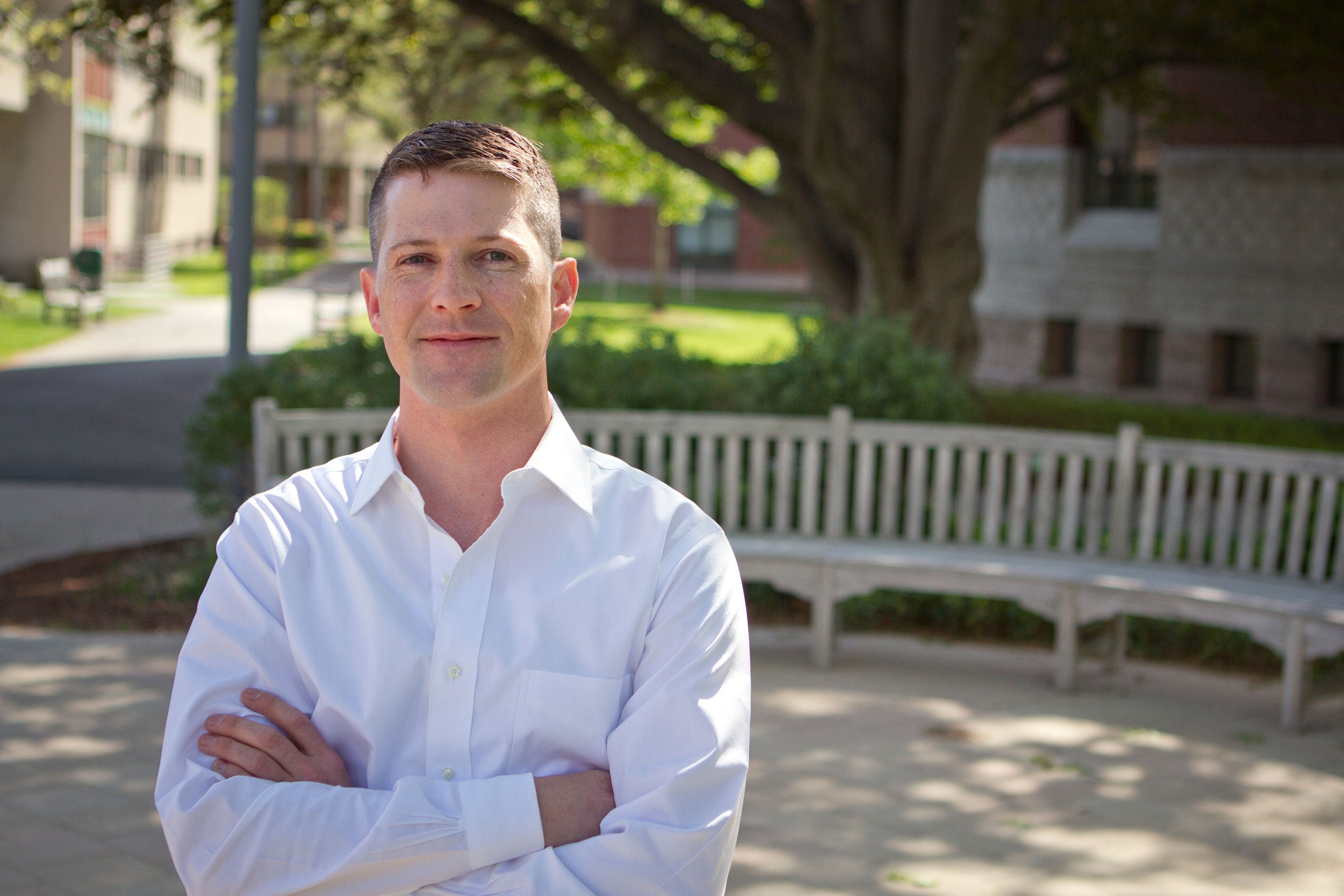Growing up in Montana with a mother who owned a horse farm, Sean Morrison ’15 found his tax attorney father’s line of work a bit dull by comparison. So Morrison is a little surprised to find himself, years later, graduating from law school with the intent to specialize in tax law and policy.
Like many things about him, Morrison’s passion for tax law comes directly out of his Montana upbringing. When he was in college, the state was embroiled in a debate about whether to increase tax incentives for the oil and gas industry. Morrison attended arguments at the state capitol, where he heard industry executives argue that if taxes increased, their companies would relocate to another state. He thought that made little sense – after all, oil and gas companies were tied to natural resources that were geographically limited. But what about mobile industries, like film, with which he had become familiar through a high school job as a film projectionist? How would they respond to tax incentives?
Morrison explored the topic in his undergraduate thesis at the University of Montana. Through his research, he discovered that tax law was not the dreary world he had envisioned as a child, but a centerpiece in forming policy. People rarely think about how tax policies and spending policies inform one another, he said, which often results in tax policies and spending policies that work in opposite directions. “One of the complaints people have about how Washington works is that there are two different offices for tax policies and for budget policies. They’re not even in the same building,” he said. “It’s like they don’t exist together.”
Morrison has long had a penchant for politics. In college, he worked on campaigns to generate support for the Affordable Care Act in Montana, delivering a speech in the state capitol in 2008 about the daunting health care costs and low rates of insurance coverage for recent graduates. He couldn’t help but chuckle at the way tax policy interacts with his various other political interests, noting that the Supreme Court unexpectedly upheld the Affordable Care Act’s controversial individual mandate to purchase health insurance as a lawful exercise of Congress’s taxing powers.
After college, Morrison moved to D.C. to work as an unpaid intern for Max Baucus, then a senator from Montana, who chaired the Senate Committee on Finance. Eventually, he became a research assistant on tax policy for the committee. For the first time, he said, he saw lawyers doing work that made him envious.
Morrison’s interest in tax and politics led him to Harvard, where he pursued a range of interests, including serving as an editor on the Journal on Legislation, working in the housing clinic, volunteering with HLS TaxHelp, which helps low-income individuals fill out tax forms, and competing with the law school’s Target Shooting Club.
One formative experience was writing an article later published in an environmental law journal, under the supervision of Professor Joseph Singer ’81, about a Montana law that allows people to use streams for recreational purposes even if to do so they must trespass on private property. Property owners in Montana had challenged the law as a form of illegal taking of property without just compensation. Although the legal issue seemed somewhat archaic, he saw an obvious connection to his other political and policy interests. “What’s consistent about my life and what I’ve done with it is my concern that the public needs access to resources, and that those channels work well,” he said. “The Montana law is really a minimal tax on people who own large estates.”
After law school, Morrison is headed to Miller & Chevalier in Washington, D.C., a firm specializing in tax and administrative law that was founded the year after the first federal income tax was passed. There, he hopes to build skills that may one day lead back to helping the government in his home state establish tax and consumer protection policies that help individuals access public resources with minimal burdens – as well as reunite with his horse, named Fenway, who awaits him at his mother’s ranch.
